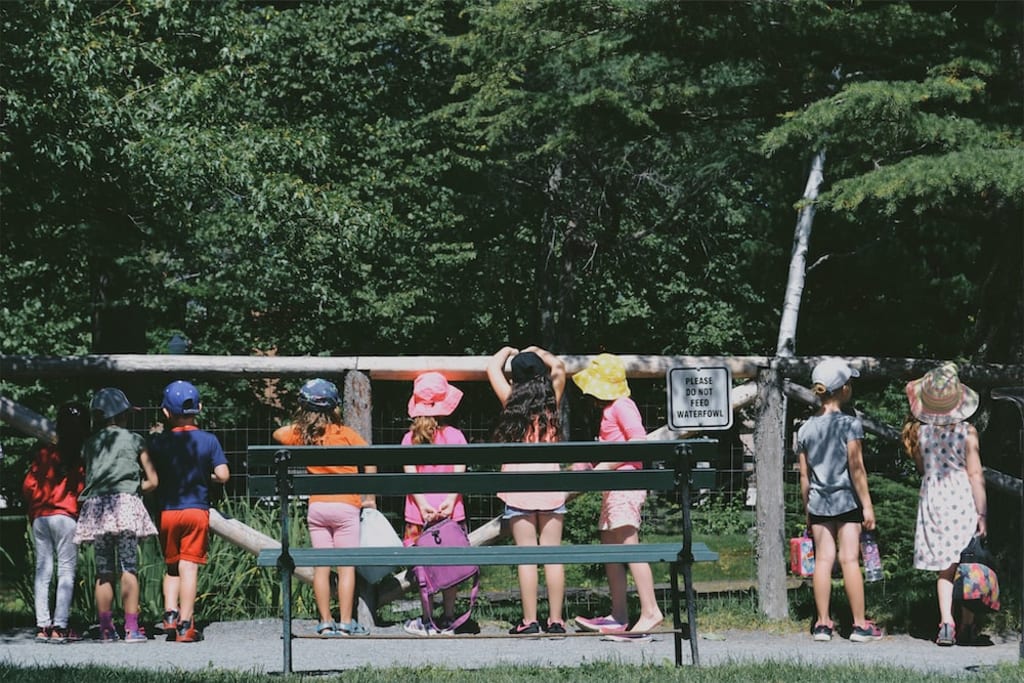The Impact of Field Trips on Enhancing Learning: A Comprehensive Guide
Field trips have been a staple of educational experiences for generations, providing students with unique learning opportunities outside the classroom. As educators continue to explore new ways to engage students and enhance their learning, the importance of field trips becomes even more apparent. In this comprehensive guide, we will delve into the various benefits of field trips, from real-world learning to socio-emotional growth, and explain how these experiences can have a lasting impact on students' academic success.

Table of Contents
Introduction: The Importance of Field Trips
Real-World Learning
Access to Unique Resources and Environments
Socio-Emotional Growth
Academic Impact
Engagement and Motivation
Cultural Exposure and Appreciation
Developing Collaboration and Communication Skills
Critical Thinking and Problem Solving
Conclusion: The Lasting Benefits of Field Trips
1. Introduction: The Importance of Field Trips
The value of field trips in education cannot be overstated. These experiences allow students to explore the world around them, broaden their horizons, and create lasting memories that will shape their perspectives and understanding of various subjects. By taking learning outside the classroom, educators can provide students with unique opportunities to engage with academic concepts in a hands-on, real-world context. This, in turn, can lead to increased motivation, a deeper understanding of subject matter, and a stronger connection between students and the world they inhabit.
2. Real-World Learning
One of the most significant benefits of field trips is the opportunity for students to experience real-world learning. By stepping outside the confines of the classroom, students can see the direct connections between their lessons and the world around them. This helps them understand that the knowledge they gain in school is not just theoretical, but can be applied to real-life situations and problems.
Examples of real-world learning through field trips can include visiting a local grocery store to learn about nutrition and budgeting, exploring a nearby waterfront park to study ecosystems, or touring a museum to delve into history and culture. Each of these experiences contributes to a student's overall understanding of the world and helps them see the relevance of their education in a broader context.
3. Access to Unique Resources and Environments
Field trips provide students with access to tools, environments, and resources that may not be available within the school setting. Our communities are rich with learning opportunities, and field trips allow educators to tap into these valuable resources.
For instance, visiting an aquarium can give students an up-close look at underwater ecosystems, while a trip to a river might involve hands-on citizen science activities. Field trips to museums, historical sites, and cultural centers provide access to artifacts and exhibits that can bring lessons to life in a way that textbooks and classroom lectures simply cannot replicate.
4. Socio-Emotional Growth
Field trips can also contribute to a student's socio-emotional growth. By exposing students to new experiences and diverse perspectives, field trips can help foster empathy, tolerance, and a greater understanding of the world around them.
A study conducted by the University of Arkansas found that students who participated in a field trip to an art museum showed increased empathy, tolerance, and critical thinking skills. Experiencing art and engaging with different perspectives can encourage students to think beyond their own experiences and consider the broader implications of their learning.
5. Academic Impact
Research has shown that field trips can have a positive impact on academic achievement. A recent study by Emilyn Ruble Whitesell found that middle school students who participated in science field trips through the Urban Advantage program scored better on state science tests. The hands-on learning experiences provided by field trips can help make academic concepts more memorable and accessible for students.
Field trips also provide opportunities for students to engage with content in a variety of ways. By presenting concepts through different media and modalities, field trips can help students who struggle with traditional learning methods feel more confident and capable. This holistic approach to learning can serve as a touchpoint for an entire unit of study, reinforcing the material covered in the classroom.
6. Engagement and Motivation
Field trips can also enhance student engagement and motivation. By offering a break from the routine of the classroom, field trips can pique students' curiosity and inspire them to delve deeper into a subject. This enthusiasm for learning can carry over into the classroom, as students become more invested in their education and eager to explore new topics.
Furthermore, field trips can help students develop a sense of ownership over their learning. By connecting their educational experiences to real-life situations, students may be more motivated to take control of their learning and pursue their interests outside of school.
7. Cultural Exposure and Appreciation
Field trips can serve as valuable opportunities for cultural exposure and appreciation. By visiting museums, historical sites, and cultural centers, students can gain a deeper understanding of the diverse perspectives and experiences that shape the world around them. This exposure to different cultures, histories, and ways of life can foster a greater sense of global awareness and an appreciation for the richness of human experience.
In addition, field trips can help students develop a sense of cultural identity and pride in their own heritage. By exploring the history and contributions of their own communities, students can gain a greater understanding of their place in the world and the unique qualities that define their cultural background.
8. Developing Collaboration and Communication Skills
Field trips often require students to work together in groups, providing opportunities for them to practice collaboration and communication skills. By working together to solve problems, complete tasks, and explore new environments, students can learn the importance of teamwork, cooperation, and effective communication.
These skills are not only essential for success in the classroom, but also in the workplace and in everyday life. By participating in field trips, students can develop the interpersonal skills that will serve them well throughout their academic and professional careers.
9. Critical Thinking and Problem Solving
Field trips can also help students develop critical thinking and problem-solving skills. By engaging with real-world issues and challenges, students are encouraged to think critically about the material they are learning and apply their knowledge to find solutions.
For example, a field trip to a local community garden might involve students in discussions about sustainability, food security, and ecological practices. By grappling with these complex issues, students can develop the critical thinking skills necessary for success in the 21st-century workforce.
10. Conclusion: The Lasting Benefits of Field Trips
In conclusion, field trips play a crucial role in enhancing students' learning experiences and overall academic success. By providing opportunities for real-world learning, access to unique resources and environments, and opportunities for socio-emotional growth, field trips can have a lasting impact on students' lives.
As educators, it is our responsibility to provide students with diverse and enriching learning experiences that will help them develop the skills and knowledge necessary to thrive in the world. By incorporating field trips into the curriculum, we can help broaden students' horizons and inspire them to become lifelong learners.






Comments
There are no comments for this story
Be the first to respond and start the conversation.